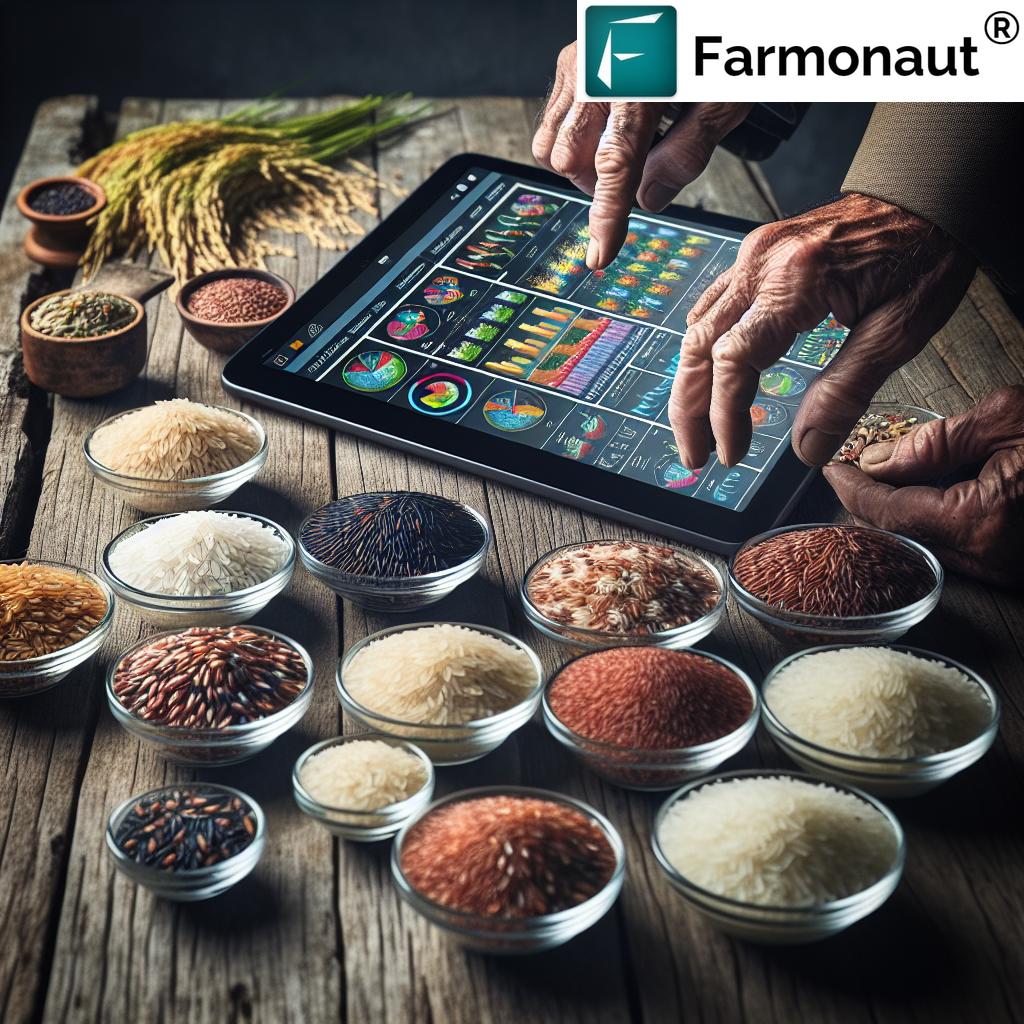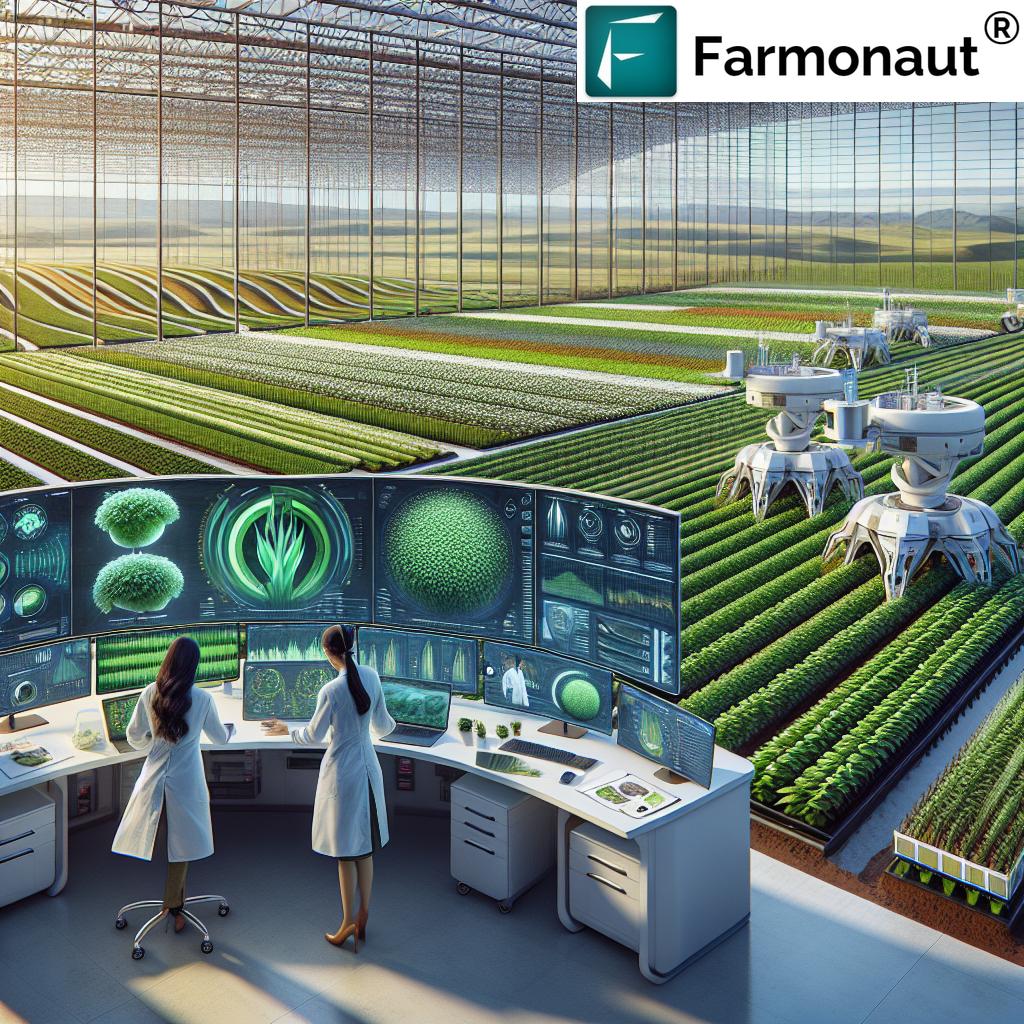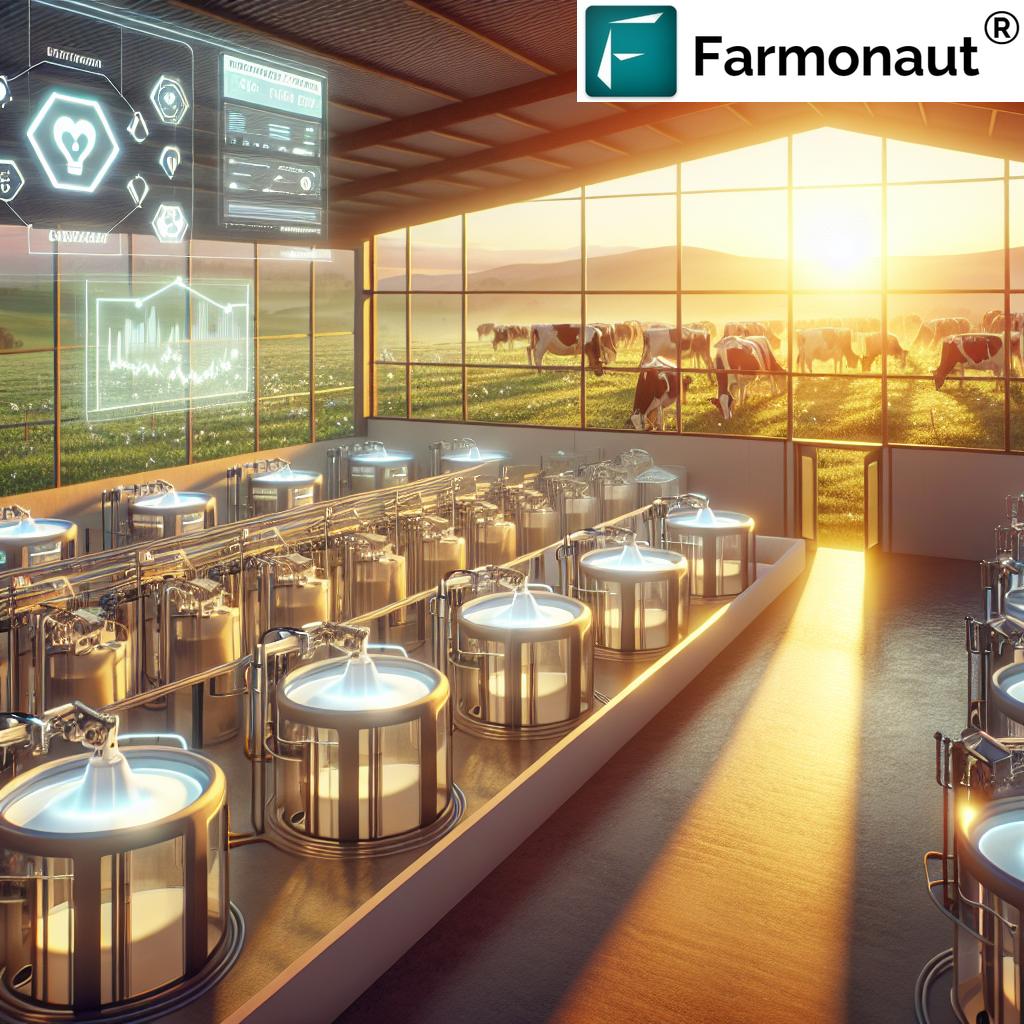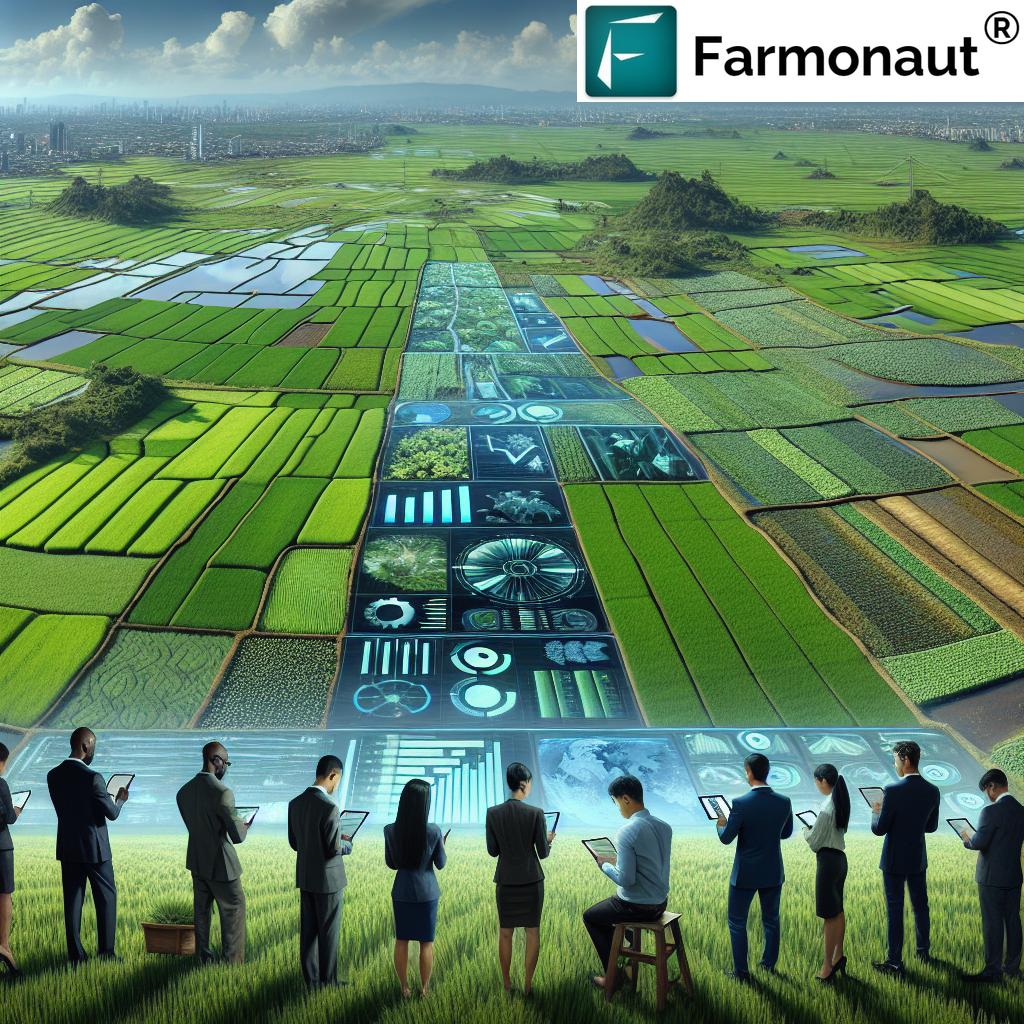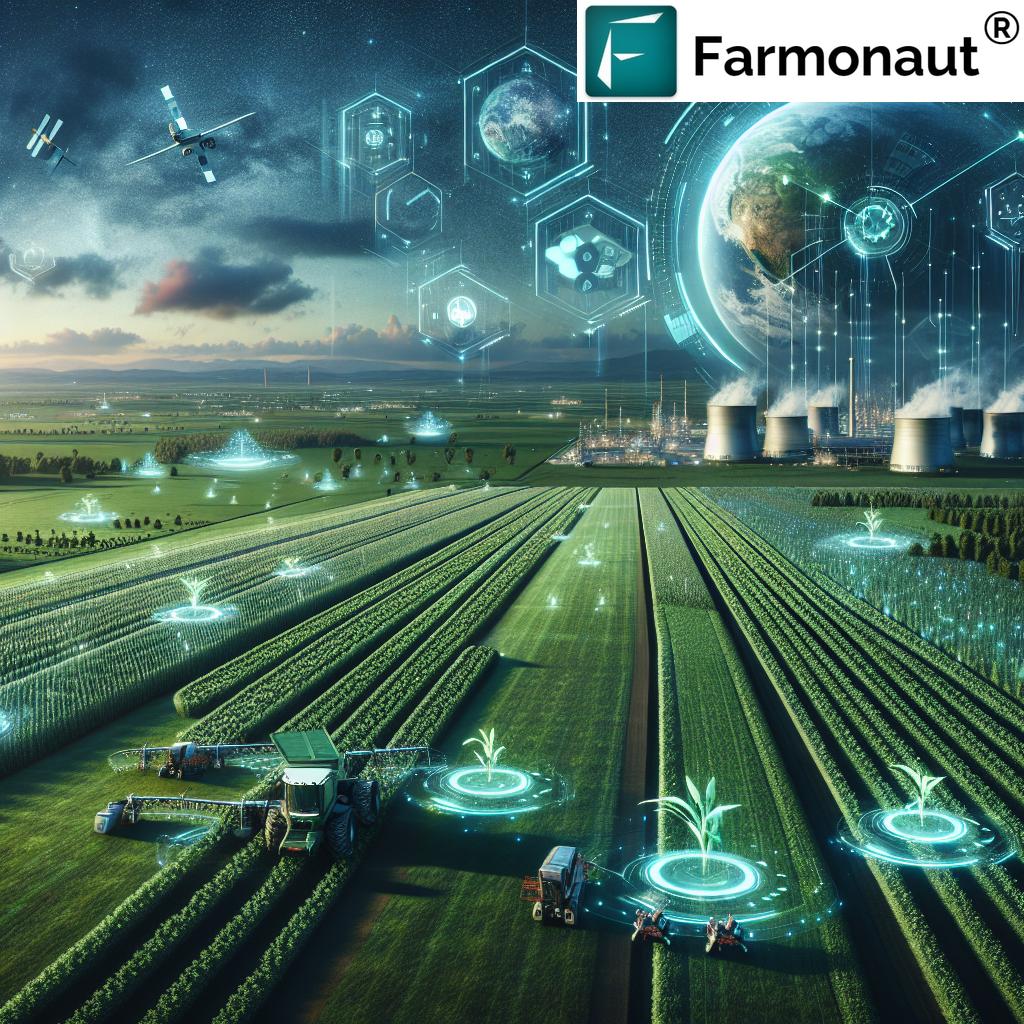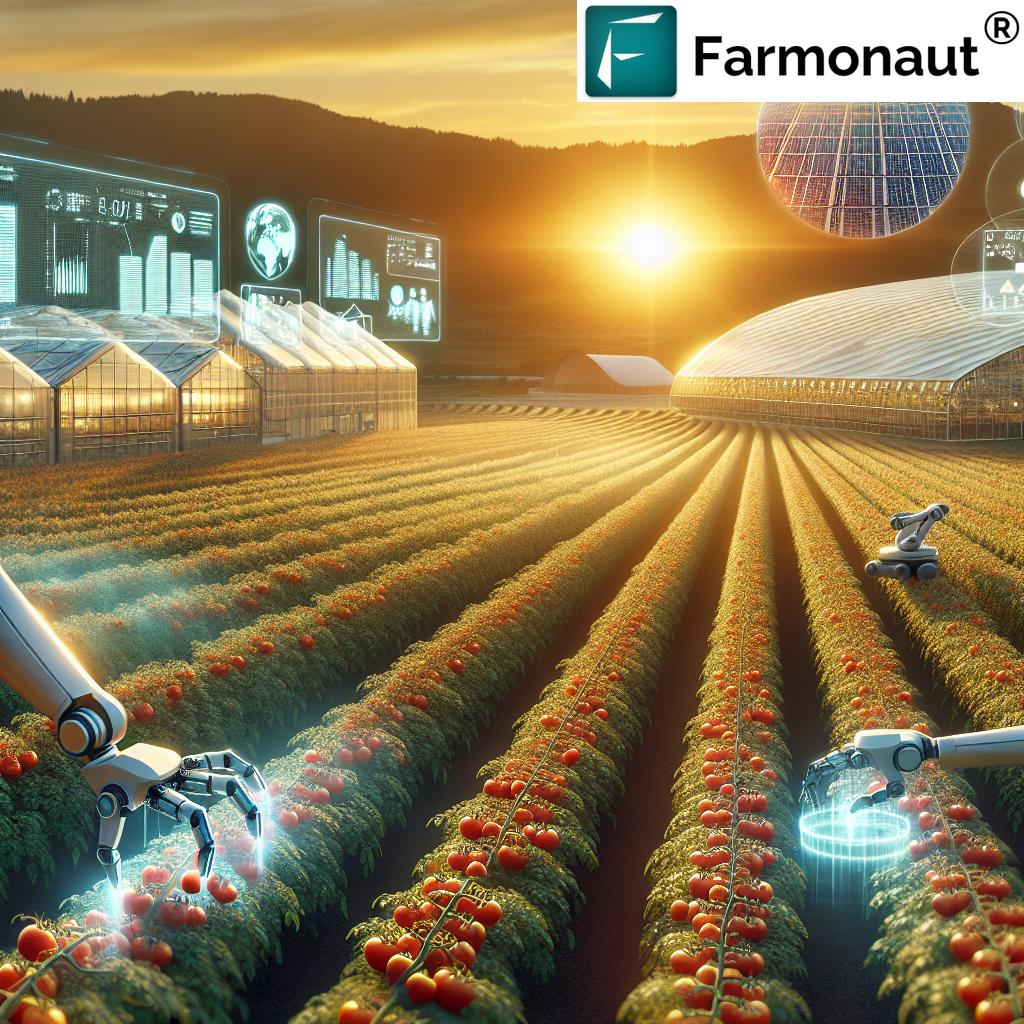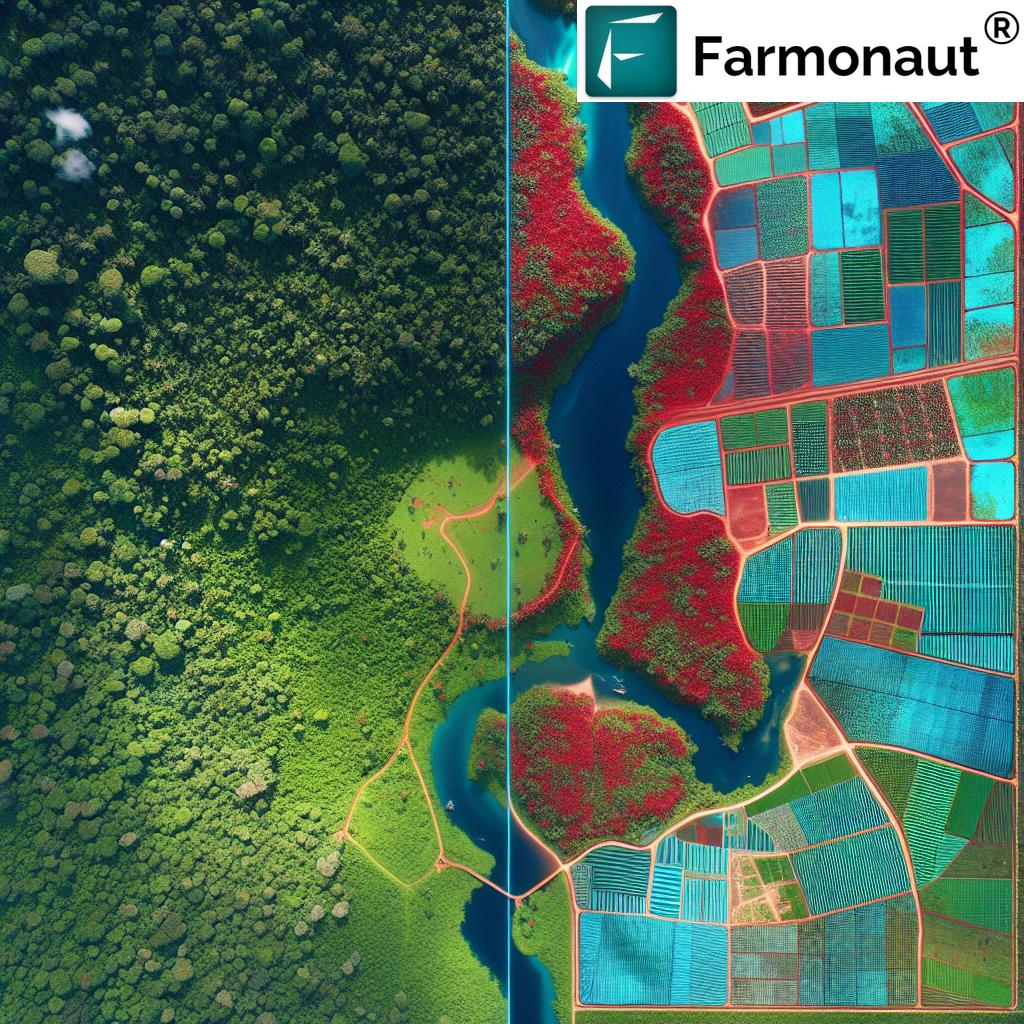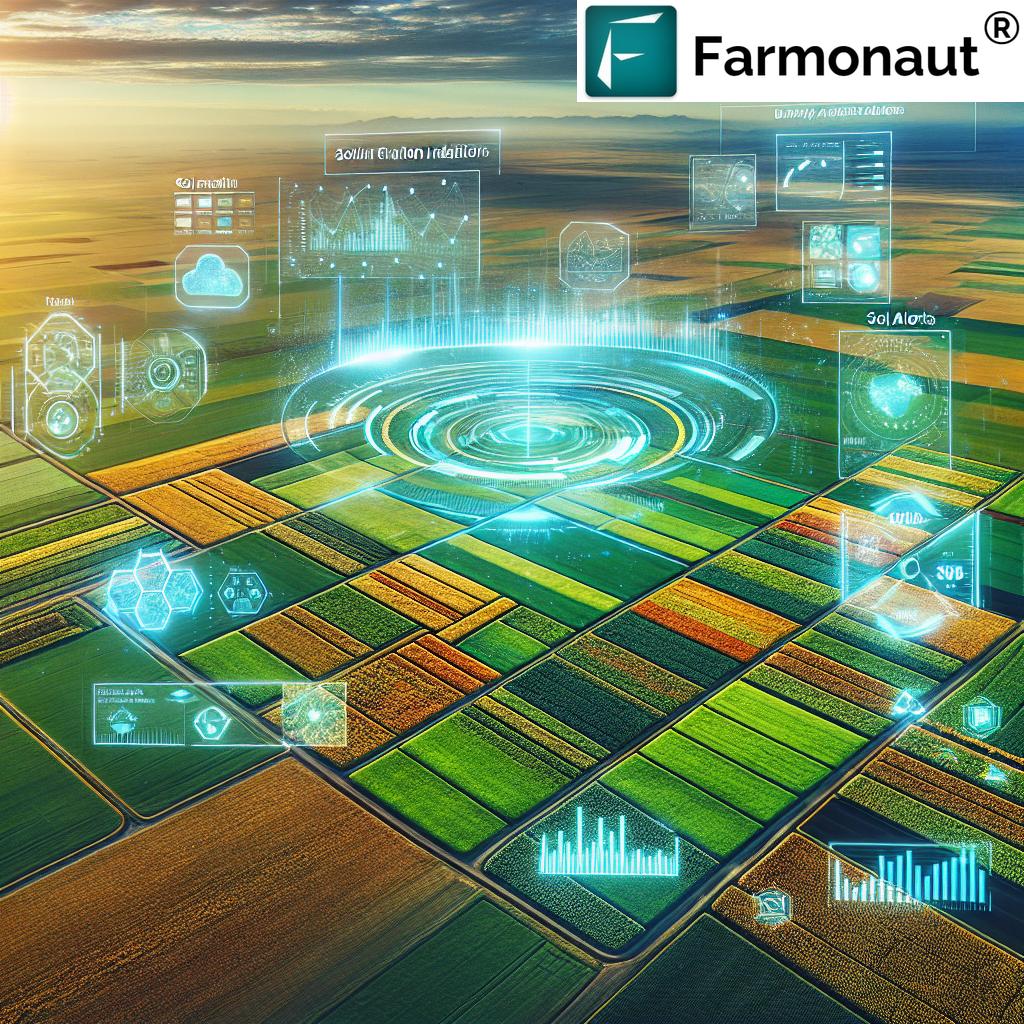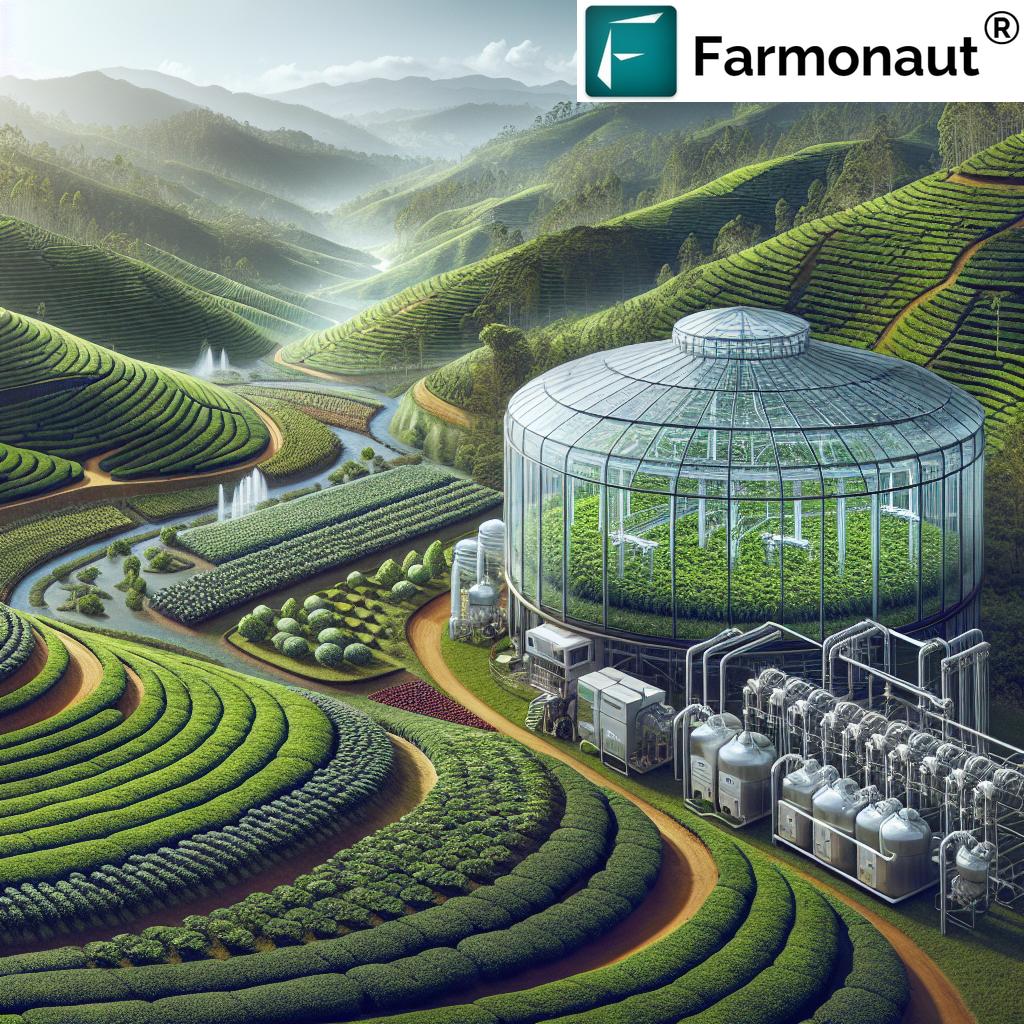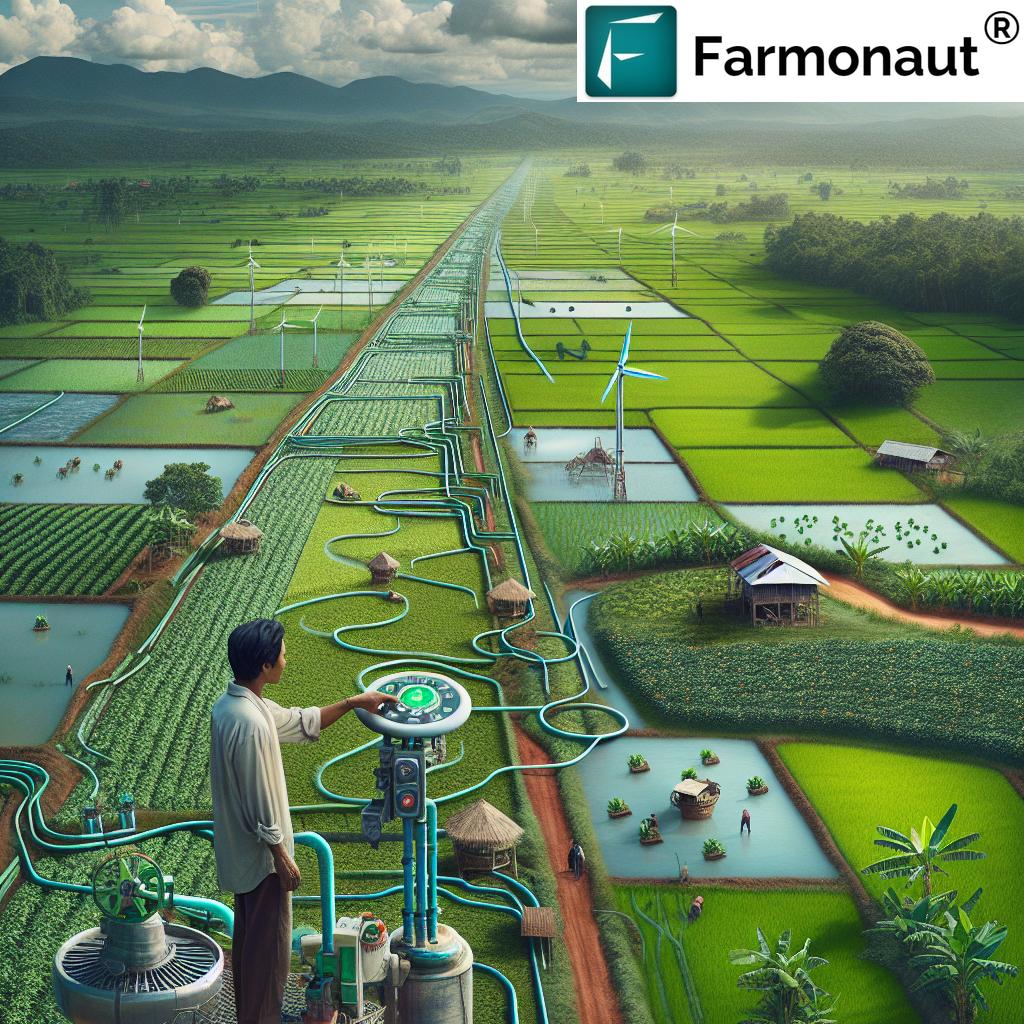Armenia-Russia Agricultural Cooperation: Boosting Trade and Food Security through Scientific Collaboration
“Armenia-Russia trade turnover increased by 99.2%, highlighting the growing importance of their agricultural partnership.”
In the realm of international agricultural partnerships, we are witnessing a remarkable development that promises to reshape the landscape of food security and economic growth. The recent high-level discussions between Armenia and Russia have set the stage for a new era of agricultural cooperation, one that holds immense potential for both nations and the broader region. As experts in agricultural technology and remote sensing, we at Farmonaut are keenly observing these developments, recognizing the transformative power of such collaborations in the global fight against food insecurity.
The Dawn of a New Agricultural Alliance
On November 15, a significant meeting took place in Yerevan, Armenia’s capital, marking a pivotal moment in Armenia-Russia relations. Deputy Prime Minister Mher Grigoryan of Armenia engaged in substantive talks with a Russian delegation led by Minister of Agriculture Oksana Lut. The primary focus of their discussions was to explore and enhance agricultural trade cooperation between the two nations, a topic of crucial importance in today’s global context.
This meeting wasn’t just another diplomatic formality; it represented a concerted effort to address some of the most pressing challenges facing modern agriculture. The Armenian government’s press service emphasized the critical nature of this agricultural cooperation, particularly in relation to food security solutions. In an era where climate change and geopolitical tensions threaten global food supplies, such collaborative efforts are not just beneficial – they’re essential.
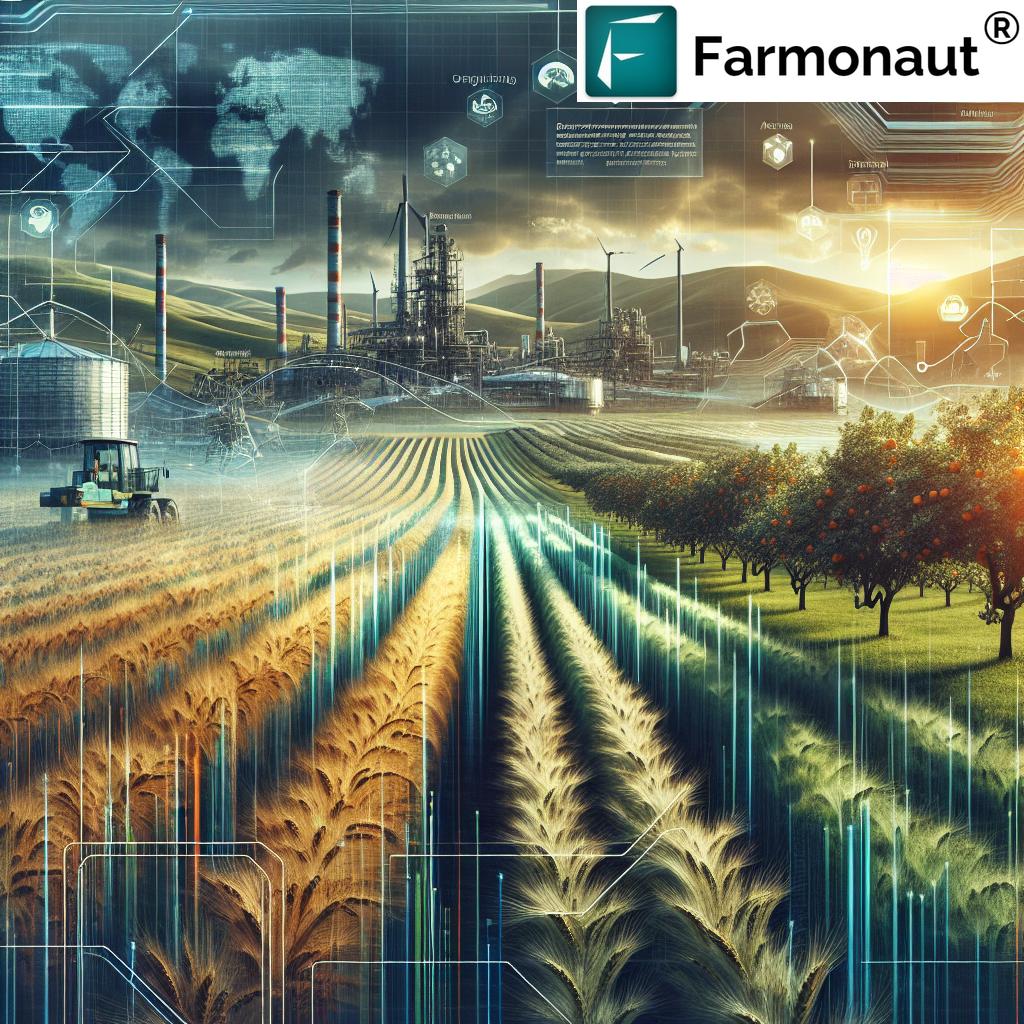
Scientific Collaboration: The Cornerstone of Agricultural Progress
One of the most exciting aspects of this budding partnership is the emphasis on scientific and technical collaboration in agriculture. This focus aligns perfectly with Farmonaut’s mission of integrating cutting-edge technology into farming practices. The potential for sharing expertise, technology, and research initiatives between Armenia and Russia could lead to significant improvements in agricultural productivity and efficiency.
We believe that this scientific collaboration could encompass several key areas:
- Precision Agriculture Technologies: Sharing advanced satellite-based crop monitoring systems, similar to those offered by Farmonaut, could revolutionize farming practices in both countries.
- AI-Driven Agricultural Solutions: Implementing artificial intelligence in farm management, pest control, and yield prediction could significantly boost agricultural output.
- Sustainable Farming Practices: Exchanging knowledge on eco-friendly farming methods to ensure long-term food security while preserving natural resources.
- Climate-Resilient Crop Varieties: Joint research on developing crop varieties that can withstand extreme weather conditions and changing climates.
By leveraging these scientific advancements, Armenia and Russia are poised to not only enhance their own agricultural sectors but also contribute valuable insights to the global agricultural community.
The Economic Impact: A 99.2% Surge in Trade
The significance of this agricultural cooperation is underscored by the impressive economic figures we’re seeing. In the first nine months of 2024, the trade turnover between Armenia and Russia reached an astounding $9,756,475.1 thousand. This represents a remarkable 99.2% increase compared to the same period in 2023. Such a dramatic surge in trade is not just a number; it’s a testament to the growing interdependence and mutual trust between these two nations in the realm of agriculture.
This substantial increase in trade turnover suggests several positive outcomes:
- Enhanced market access for agricultural products from both countries
- Improved food security through diversified supply chains
- Increased economic opportunities for farmers and agribusinesses
- Greater resilience in the face of global food supply disruptions
As we at Farmonaut analyze these developments, we see tremendous potential for agricultural technology sharing to play a crucial role in sustaining and even accelerating this growth trajectory.
Food Security: A Shared Priority
“High-level discussions between Armenia and Russia aim to enhance agricultural productivity and foster scientific collaboration in agriculture.”
At the heart of this cooperation lies a shared commitment to enhancing food security. In today’s world, where climate change and geopolitical tensions threaten global food supplies, the importance of robust, sustainable food systems cannot be overstated. The Armenia-Russia partnership recognizes this urgency and is taking proactive steps to address it.
Key aspects of their food security initiatives likely include:
- Diversification of Crop Production: Reducing reliance on a limited range of crops to enhance resilience against pests and climate variability.
- Modernization of Storage and Distribution Systems: Implementing advanced technologies to reduce post-harvest losses and improve food preservation.
- Development of Sustainable Agricultural Practices: Promoting methods that maintain soil health and water resources for long-term food production.
- Enhancement of Early Warning Systems: Utilizing technologies like those offered by Farmonaut to predict and mitigate potential crop failures or food shortages.
By focusing on these areas, Armenia and Russia are not just securing their own food futures but are also contributing to global food security efforts.
The Role of Agricultural Technology in This Partnership
As a company at the forefront of agricultural technology, we at Farmonaut see immense potential in how our solutions could contribute to and benefit from this international collaboration. Our satellite-based farm management solutions, AI-driven advisory systems, and blockchain-based traceability tools align perfectly with the goals of this partnership.
Here’s how advanced agricultural technology can play a crucial role:
- Satellite-Based Crop Monitoring: Our technology can provide real-time insights into crop health across vast agricultural areas in both countries, enabling timely interventions and optimized resource use.
- AI-Powered Decision Support: By integrating local agricultural data with our AI systems, we can offer tailored advice to farmers in both Armenia and Russia, helping them make informed decisions about planting, irrigation, and harvesting.
- Blockchain for Supply Chain Transparency: Our blockchain solutions can enhance the traceability of agricultural products traded between the two countries, ensuring quality and building consumer trust.
- Data-Driven Policy Making: The wealth of agricultural data generated through these technologies can inform evidence-based policy decisions, leading to more effective agricultural strategies at the national level.
To explore how Farmonaut’s solutions can revolutionize your agricultural practices, visit our web application or download our mobile apps:
Looking Ahead: The Future of Armenia-Russia Agricultural Cooperation
As we look to the future, the potential of this agricultural partnership between Armenia and Russia is truly exciting. We anticipate several key developments:
- Increased Research Collaboration: Joint research projects focusing on climate-resilient crops, sustainable farming methods, and precision agriculture technologies.
- Enhanced Trade Infrastructure: Development of more efficient logistics and transportation systems to facilitate smoother agricultural trade between the two countries.
- Knowledge Exchange Programs: Regular exchange of agricultural experts, scientists, and farmers to share best practices and innovations.
- Joint Food Security Initiatives: Collaborative efforts to address regional food security challenges, potentially extending to neighboring countries.
This partnership has the potential to serve as a model for international agricultural cooperation, demonstrating how countries can work together to address global challenges in food production and security.
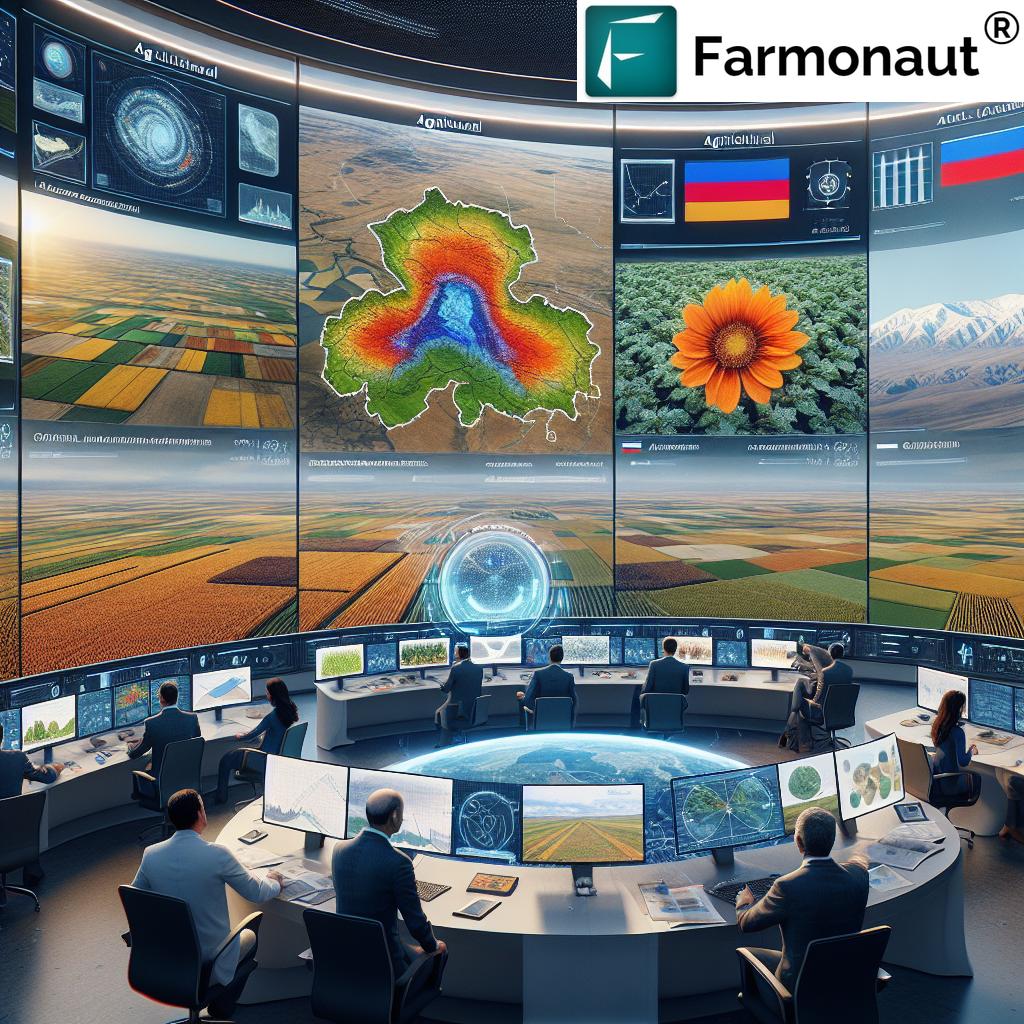
The Global Impact of Armenia-Russia Agricultural Cooperation
While the focus of this cooperation is primarily bilateral, its implications extend far beyond the borders of Armenia and Russia. In an interconnected world, advancements in agricultural practices and food security strategies in one region can have ripple effects globally. Here’s how this partnership could impact the broader agricultural landscape:
- Setting a Precedent for International Collaboration: This partnership could inspire similar collaborations between other countries, fostering a more cooperative global approach to food security.
- Advancing Global Agricultural Research: The scientific breakthroughs resulting from this collaboration could contribute significantly to global efforts in combating hunger and malnutrition.
- Stabilizing Regional Food Markets: Enhanced production and trade between Armenia and Russia could help stabilize food prices and supply in the broader Eurasian region.
- Promoting Sustainable Agricultural Practices: As these countries work together on sustainable farming methods, they could become influential voices in global discussions on climate-smart agriculture.
For agricultural professionals and businesses looking to leverage cutting-edge technology in their operations, Farmonaut offers comprehensive solutions. Explore our API for integrating our satellite and weather data into your systems, or refer to our API Developer Docs for detailed implementation guidelines.
Challenges and Opportunities
While the potential benefits of this agricultural cooperation are significant, it’s important to acknowledge the challenges that may arise:
- Harmonizing Agricultural Standards: Aligning quality standards and regulatory frameworks between the two countries may require substantial effort and negotiation.
- Addressing Climate Change Impacts: Both countries will need to adapt their agricultural strategies to the increasing challenges posed by climate change.
- Balancing Competition and Cooperation: Finding the right balance between competitive advantage and collaborative efforts in agricultural trade and research.
- Technology Adoption and Digital Divide: Ensuring equitable access to advanced agricultural technologies across different farming communities in both countries.
However, these challenges also present opportunities for innovation and growth. By leveraging technologies like those offered by Farmonaut, both countries can address these issues more effectively. Our satellite-based monitoring and AI-driven insights can help in adapting to climate change, while our blockchain solutions can assist in standardizing and tracking agricultural products across borders.
Armenia-Russia Agricultural Cooperation Highlights
| Cooperation Area | Current Status | Future Goals | Potential Impact |
|---|---|---|---|
| Trade Turnover | 99.2% increase | Projected 150% increase by 2025 | Strengthened economic ties, improved market access |
| Scientific Collaboration | Initial discussions underway | Establish joint research centers | Accelerated agricultural innovation, knowledge sharing |
| Food Security Initiatives | Conceptual stage | Implement regional food security program | Enhanced resilience to food supply disruptions |
| Technology Sharing | Preliminary agreements | Develop shared agricultural technology platforms | Improved farming efficiency and productivity |
| Research Projects | Identifying key areas | Launch 5 major joint research projects by 2026 | Breakthroughs in crop resilience and sustainable farming |
The Role of Data in Shaping Agricultural Policies
In the context of this Armenia-Russia agricultural cooperation, the role of data cannot be overstated. At Farmonaut, we understand the power of data in transforming agricultural practices and policies. Our advanced satellite-based monitoring systems and AI-driven analytics can provide valuable insights that can shape the future of agriculture in both countries.
Key areas where data can make a significant impact include:
- Crop Yield Prediction: Utilizing historical and real-time data to forecast crop yields more accurately, enabling better planning and resource allocation.
- Resource Optimization: Analyzing soil health, water availability, and climate patterns to optimize the use of agricultural inputs.
- Risk Assessment: Identifying potential threats to crops early, allowing for timely interventions and minimizing losses.
- Policy Formulation: Providing evidence-based insights to policymakers for developing more effective agricultural and food security strategies.
By harnessing the power of data, Armenia and Russia can make more informed decisions, leading to more sustainable and productive agricultural sectors.
Sustainable Food Supply Strategies
A crucial aspect of the Armenia-Russia agricultural cooperation is the development of sustainable food supply strategies. This aligns perfectly with global efforts to create resilient and environmentally friendly food systems. Some key strategies that could emerge from this partnership include:
- Agroecological Approaches: Promoting farming practices that work in harmony with natural ecosystems, reducing reliance on chemical inputs.
- Water Conservation Techniques: Implementing advanced irrigation systems and water management practices to address water scarcity issues.
- Crop Diversification: Encouraging the cultivation of a wider variety of crops to enhance biodiversity and food system resilience.
- Reducing Food Waste: Developing better storage, processing, and distribution systems to minimize post-harvest losses.
These strategies not only ensure a more stable food supply but also contribute to the overall sustainability of the agricultural sector in both countries.
Economic Growth Through Agricultural Innovation
The agricultural cooperation between Armenia and Russia has the potential to drive significant economic growth in both nations. By focusing on innovation and technology adoption, this partnership can create new economic opportunities and enhance the competitiveness of their agricultural sectors globally.
Key areas for economic growth include:
- Value-Added Processing: Investing in food processing industries to increase the value of agricultural exports.
- Agri-Tech Start-ups: Fostering an environment for agricultural technology start-ups to thrive, creating jobs and driving innovation.
- Export Market Expansion: Leveraging combined resources and expertise to access new international markets for agricultural products.
- Rural Development: Improving rural infrastructure and creating employment opportunities in agricultural and related sectors.
By focusing on these areas, Armenia and Russia can transform their agricultural sectors into powerful engines of economic growth and development.
The Future of Farming: Integrating Technology and Tradition
As we look to the future of agriculture in Armenia and Russia, it’s clear that success will come from effectively blending traditional farming wisdom with cutting-edge technology. At Farmonaut, we believe in this harmonious integration, offering tools that enhance rather than replace traditional farming knowledge.
Some ways this integration could manifest in the Armenia-Russia cooperation include:
- Smart Farming Practices: Implementing IoT devices and sensors to monitor crop health and environmental conditions, allowing for precise interventions.
- AI-Assisted Decision Making: Using artificial intelligence to analyze vast amounts of agricultural data, providing farmers with actionable insights.
- Blockchain for Transparency: Implementing blockchain technology to ensure transparency and traceability in the agricultural supply chain.
- Drone Technology: Utilizing drones for crop monitoring, spraying, and mapping to increase efficiency and reduce labor costs.
To see how these technologies can be applied in practice, check out our tutorial on generating time-lapse imagery for crop monitoring:
Conclusion: A New Chapter in Agricultural Cooperation
The agricultural cooperation between Armenia and Russia marks the beginning of an exciting new chapter in international agricultural partnerships. By focusing on scientific collaboration, technological exchange, and sustainable practices, this partnership has the potential to not only boost trade and ensure food security for both nations but also to contribute significantly to global agricultural advancements.
As we at Farmonaut continue to innovate in the field of agricultural technology, we look forward to seeing how initiatives like this Armenia-Russia cooperation can leverage advanced tools and data-driven insights to create more resilient, productive, and sustainable food systems. The future of agriculture is bright, and partnerships like these are lighting the way forward.
FAQs
- What are the main goals of the Armenia-Russia agricultural cooperation?
The main goals include enhancing agricultural trade, ensuring food security, fostering scientific collaboration, and boosting agricultural productivity through technology sharing and joint research initiatives. - How has the trade turnover between Armenia and Russia changed recently?
The trade turnover has seen a remarkable 99.2% increase in the first nine months of 2024 compared to the same period in 2023. - What role does scientific collaboration play in this partnership?
Scientific collaboration is a cornerstone of this partnership, focusing on sharing expertise, technology, and research initiatives to improve agricultural efficiency and productivity. - How can advanced agricultural technologies benefit this cooperation?
Technologies like satellite-based crop monitoring, AI-driven advisory systems, and blockchain-based traceability can significantly enhance agricultural productivity, resource management, and supply chain transparency. - What are some potential challenges in implementing this agricultural cooperation?
Challenges may include harmonizing agricultural standards, addressing climate change impacts, balancing competition and cooperation, and ensuring equitable access to advanced technologies.




